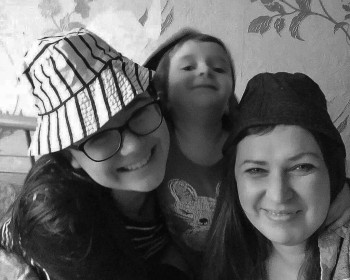Ukraine war latest: Search for survivors ends in Dnipro

Key developments on Jan. 17:
- Controversial advisor to Zelensky resigns after false claims on Dnipro missile attack
- UK Defense Ministry backs claims that Moscow used inaccurate missile for Dnipro strike
- 19 people are still missing, but the State Emergency Service doesn't expect to find more survivors.
Three days after a Russian Kh-22 missile struck an apartment building in the central Ukrainian city of Dnipro, the search and rescue operation was completed, President Volodymyr Zelensky said.
The body of another child has been found in the debris on Jan. 17, bringing the death toll of the attack to 45, according to Dnipropetrovsk Oblast Governor Valentyn Reznichenko.
In total, at least six children were killed in the strike. The strike also left 79 injured, including 16 children.
Zelensky said that about 1,700 people lived in the high-rise building that was hit; 230 apartments were damaged, and 72 were completely destroyed by Russia's attack.
"I instructed (authorities) to simplify and speed up the provision of assistance to the victims so that people could start rebuilding their lives after this tragedy as soon as possible," Zelensky said on Jan. 17.
read also

He added that Ukraine is carrying out an investigation to clarify all the circumstances and identify "all those involved in this crime of Russia against civilians."
"We will definitely find everyone who caused this terror. Everyone involved in this and other missile attacks against Ukraine will be found and held to account," he wrote.
While 19 people are still missing, the State Emergency Service said it doesn't expect to find many more survivors.
Moscow used 'notoriously inaccurate' missile for deadly strike
The Dnipro strike is one of the deadliest single Russian attacks on civilian areas. In the latest intelligence update, the U.K. Defense Ministry backed Ukraine’s military claims that Moscow was using an AS-4 Kitchen, the NATO reporting name for a Soviet Kh-22 anti-ship missile.
According to the ministry, the missile, fired from a Tu-22M3 Backfire medium bomber, is "notoriously inaccurate" when used against ground targets in urban areas.
Weapons similar to the Kh-22 have been used on civilian centers before, such as a strike on a mall in Kremenchuk, which killed at least 20 people.
The ministry mentioned that Russia falsely implied a Ukrainian air defense missile was responsible. Russian propaganda seized on the statement after Oleksii Arestovych, an advisor to the President Volodymyr Zelensky’s Office, made this claim, which was later dismissed by the Ukrainian Air Force as false.
Arestovych resigns as Zelensky's advisor after false claim on Dnipro missile
After being forced to apologize to the victims of the attack, Arestovych on Jan. 17 announced he resigned from the position of non-staff advisor to Zelensky's Office.
He cited his "fundamental mistake" as the reason for his departure.
Arestovych is a popular Ukrainian internet personality. His popularity peaked in the early weeks of the Russian invasion, when, as a non-staff communications advisor to Zelensky, he started publishing daily video updates about the course of the war – usually very optimistic, predicting a swift victory by Ukraine.
Arestovych's calm demeanor gained him a substantial following and greatly raised his profile in the media, where he was frequently cited. However, many of his claims would prove false or misleading.
He also made multiple controversial statements about Ukrainian culture, LGBT people, Ukrainian servicewomen and other topics before and after the invasion, quickly damaging his reputation among the Ukrainian public.
In 2005, Arestovych joined the right-wing Brotherhood party, which was alleged to have ties with Viktor Medvedchuk, a major ally of Russian President Vladimir Putin who was charged with high treason in 2022 and sent to Russia in a prisoner exchange.
There is evidence of Arestovych participating in press conferences organized by the neo-fascist Eurasian Movement of Aleksandr Dugin, an ally of Putin. At one such press conference, he was decrying the Orange Revolution of 2004, which challenged the fraudulent election victory of pro-Russian politician and future president Viktor Yanukovych, who later fled to Russia after the Euromaidan revolution in 2014. Arestovych falsely claimed the Orange Revolution was artificially organized by Western actors, and protesters were specially trained.









